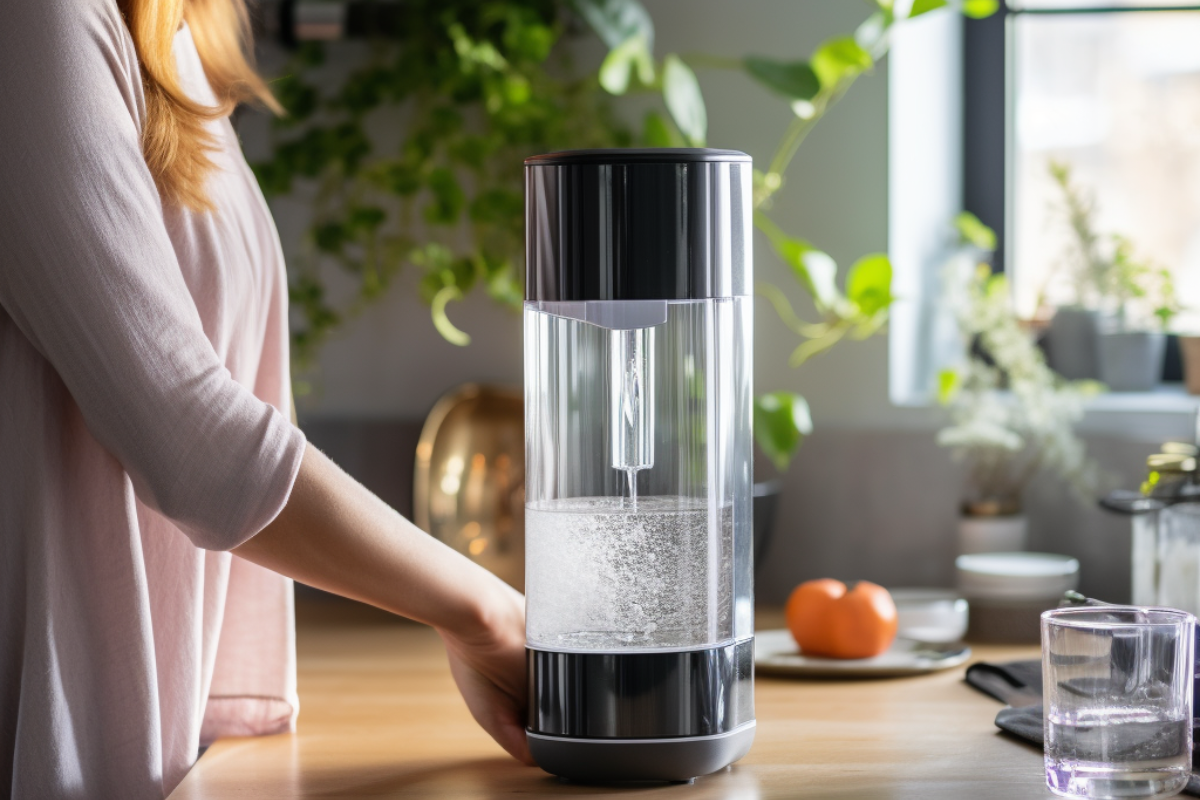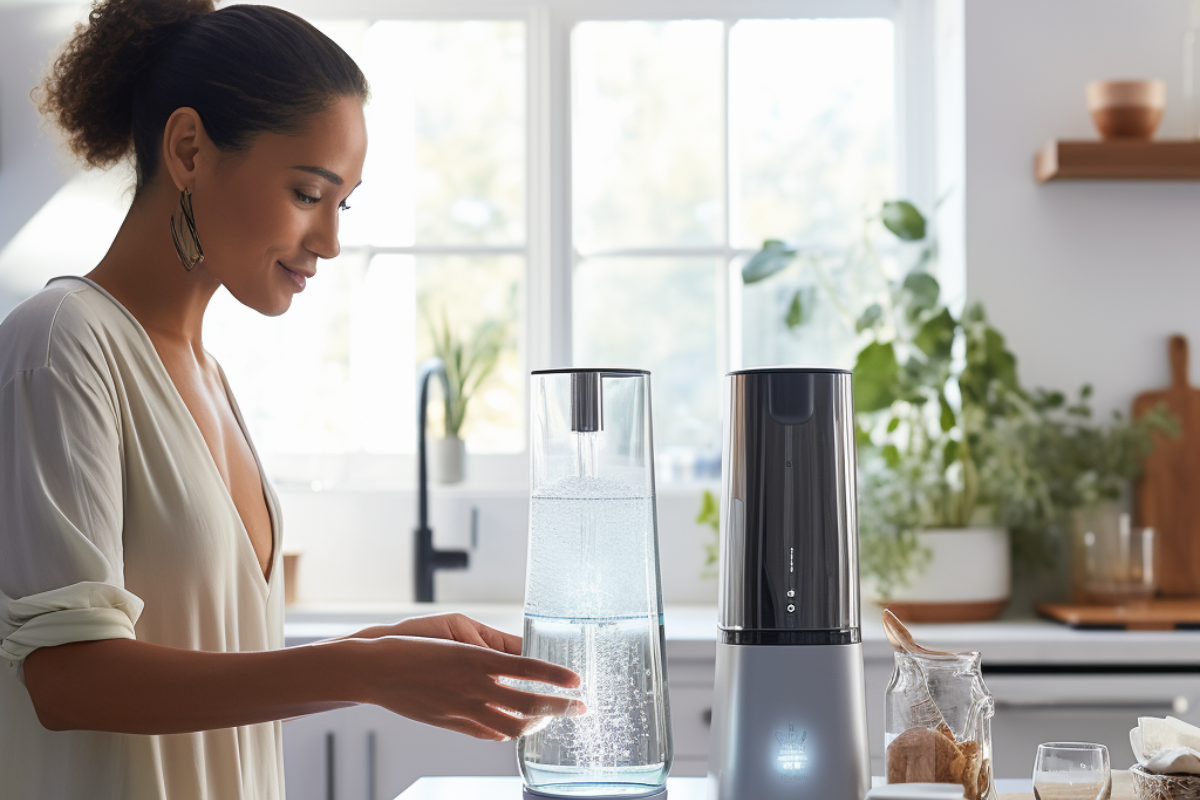is hydrogen water better than vitamin c

I remember the first time I heard about hydrogen water. I was at a friend’s house, sipping on what I thought was just a regular glass of water, when she mentioned, “You know, this isn’t just any water; it’s hydrogen water, supposed to be way better for you than vitamin C.”
I paused, glass halfway to my lips, intrigued and skeptical. How could water—something so fundamental and simple—be “better” for you; is hydrogen water better than vitamin C, a nutrient I’d grown up believing was the cornerstone of health?
This conversation sparked a journey of discovery that led me to dive deep into the world of antioxidants, the science behind hydrogen water and vitamin C, and the quest for optimal health. So, dear reader, if you’ve ever wondered whether hydrogen water is indeed the elixir it’s made out to be or just another wellness trend, you’re in the right place.
Let’s explore the fascinating world of hydrogen water and vitamin C, their possible benefits, and which one might take the crown as the best antioxidant source for your health.
Also read>>> Best Hydrogen Water Bottle
Overview of Antioxidants and Their Importance
Antioxidants are like the body’s own personal knights, shielding us from the damage caused by free radicals—those pesky molecules that can harm our cells and contribute to aging and diseases. Imagine your body as a bustling city and free radical radicals as pollution.
Just as pollution can damage the city’s infrastructure, free radicals can damage our cells. This is where antioxidants step in, neutralizing these harmful molecules and protecting the city’s—ahem, our body’s—well-being.
The importance of antioxidants cannot be overstated. They play a crucial role in maintaining our health, from supporting our immune system to protecting our skin from the visible signs of aging.
However, not all antioxidants are created equal, and the sources from which we obtain them can vary widely in their effectiveness. This brings us to the heart of our discussion: comparing the antioxidant capacities of hydrogen water and vitamin C.
Introduction to Hydrogen Water and Vitamin C

Before pitting these two contenders against each other in the antioxidant arena, let’s first understand what each one brings.
Understanding Hydrogen Water
What is Hydrogen Water?
Hydrogen water is simply water with small molecule of extra hydrogen gas (H2) dissolved. It’s not a different form of water but relatively regular H2O with an added boost of hydrogen molecules.
This might sound simple, but these additional hydrogen molecules give adding hydrogen gas to water its purported health benefits.
How is Hydrogen Water Made?
Hydrogen water is produced through several methods, including electrolysis, where electric currents split water into hydrogen and oxygen gas, with the hydrogen gas then dissolved back into the water. Another method involves reacting magnesium with water to produce hydrogen gas.
These processes enrich the water with hydrogen, and reactive oxygen species creating what many believe to be purified water, a superior form of drinking water.
Benefits of Hydrogen Water

The buzz around hydrogen water is mainly due to its antioxidant properties. Here’s a breakdown of the benefits attributed to drinking hydrogen-rich water:
- Antioxidant Properties: Hydrogen water is praised for neutralizing free radicals, potentially reducing oxidative stress and preventing cellular damage.
- Improved Athletic Performance: Some studies suggest that drinking hydrogen water can reduce muscle fatigue and improve recovery times after exercise.
- Anti-inflammatory Effects: Hydrogen water may help reduce inflammation, offering benefits for rheumatoid arthritis.
- Potential in Cancer Treatment: Early research indicates that hydrogen water might benefit cancer treatment, though more studies are needed.
- Metabolic Syndrome and Weight Loss: There’s some evidence that hydrogen water can influence fat and glucose metabolism, aiding in weight loss and improving markers of metabolic syndrome.
- Safety and Side Effects: Generally, hydrogen water is considered safe to drink, with no significant side effects reported in the literature.
Understanding Vitamin C
The Role of Vitamin C in the Body
Vitamin C, or ascorbic acid, is a vital nutrient our bodies need to perform various functions. It’s a powerful antioxidant that helps protect the body against oxidative stress, supports the immune system, and is crucial for synthesizing collagen, which plays a significant role in wound healing and skin health.
Sources of Vitamin C
Unlike hydrogen, which can be added to water, vitamin C is obtained through our diet. Citrus fruits, berries, kiwis, bell peppers, and leafy greens are all excellent sources of vitamin C.
Benefits of Vitamin C
- Immune System Support: Vitamin C is best known for bolstering the immune system.
- Skin Health: Its involvement in collagen production helps maintain healthy skin, reduce wrinkles, and speed up wound healing.
- Antioxidant Effects: Vitamin C neutralizes free radicals, reducing oxidative stress and potentially lowering the risk of chronic diseases.
Limitations and Side Effects
While vitamin C is essential for health, it has its limitations. The human body cannot store it, so it must be consumed regularly. High doses can cause gastrointestinal distress and other side effects.
With a clearer understanding of hydrogen water and vitamin C, we can now delve into a comparative analysis of their benefits, accessibility, and scientific backing.
Comparative Analysis
When weighing the benefits of hydrogen water against those of vitamin C, it’s essential to consider several factors, including antioxidant capacity, accessibility, scientific evidence, potential side effects, and practical considerations.
Let’s explore these aspects to understand better how antioxidant benefits of hydrogen water and vitamin C stack up against each other.
Hydrogen Water vs. Vitamin C: Antioxidant Capacity
- Hydrogen Water: The antioxidant properties of hydrogen water come from its ability to selectively neutralize cytotoxic oxygen radicals, potentially reducing oxidative stress without affecting beneficial free radicals. This selective antioxidant activity is a unique advantage, targeting only harmful radicals without disrupting the body’s balanced oxidative state.
- Vitamin C: As a well-known antioxidant, vitamin C protects the body by neutralizing a broader range of free radicals. However, it is not selective like hydrogen, which neutralizes harmful and potentially beneficial radicals, which could theoretically lead to an imbalance if beneficial radicals are reduced too much.
Accessibility and Ease of Use
- Hydrogen Water: Access to hydrogen water can be limited by the need for specialized equipment or the cost of purchasing pre-packaged hydrogen water. Although the technology to produce hydrogen water at home is becoming more accessible, it still represents an additional step in one’s daily routine.
- Vitamin C: Vitamin C is widely available in many fruits and vegetables and in supplement form. Its accessibility and the ease of incorporating it into the diet through natural sources or supplements make it a convenient option for most people.
Scientific Evidence and Studies
- Hydrogen Water: Research on hydrogen water is promising but still in the early stages. Studies have shown potential health benefits, including antioxidant effects, improved athletic performance, and anti-inflammatory properties. However, more extensive and long-term studies are needed to understand its impact and potential health benefits fully.
- Vitamin C: There is a wealth of scientific evidence supporting the health benefits of vitamin C, from its role in immune function to its antioxidant properties and support of skin health. The extensive research backing vitamin C gives it a robust health and wellness community foundation.
Potential Side Effects and Safety Concerns
- Hydrogen Water: Drinking hydrogen water appears safe, with no significant side effects reported in the scientific literature. However, the long-term effects are still unknown, and more research is needed to assess its safety profile fully.
- Vitamin C: Vitamin C is generally safe, but high doses can cause gastrointestinal issues like diarrhea and stomach cramps. Consuming vitamin C within the recommended daily limits is essential to avoid potential side effects.
Practical Considerations
- Hydrogen Water: Incorporating hydrogen water into your diet requires purchasing pre-packaged bottles, which can be expensive, or investing in a hydrogen water generator. While the benefits may be appealing, the cost and effort can be barriers for some people.
- Vitamin C: Vitamin C can be easily obtained from a balanced diet rich in fruits and vegetables or through affordable supplements, making it a practical and accessible option for enhancing antioxidant intake.
Conclusion on Is Hydrogen Water Better Than Vitamin C
In the debate between hydrogen water and vitamin C, both offer unique advantages as antioxidants. Hydrogen water’s selective antioxidant properties and emerging health benefits present an intriguing option for those looking to reduce oxidative stress and improve their overall health.
On the other hand, vitamin C’s well-established role in supporting immune function and skin health and its broad antioxidant effects make it a staple nutrient that’s hard to overlook.
Ultimately, choosing between hydrogen water and vitamin C doesn’t have to be an either/or decision. Incorporating both into your wellness routine could provide a comprehensive approach to fighting oxidative stress and supporting your health.
Consider your health goals and dietary preferences, and consult with a healthcare professional before significantly changing your diet or health regimen.
FAQs
The primary disadvantage of hydrogen water is its accessibility and cost. Producing hydrogen water requires specialized equipment or the purchase of pre-packaged products, which can be more expensive than normal water, regular drinking water or vitamin C supplements.is hydrogen water better than vitamin c
Hydrogen is not necessarily the most potent antioxidant. Still, it is unique in its selective antioxidant properties, allowing it to target only the most harmful free radicals without affecting beneficial ones. This selectivity could offer advantages molecular hydrogen over non-selective antioxidants like vitamin C in specific contexts.is hydrogen water better than vitamin c
While research suggests that hydrogen water’s antioxidant properties may reduce oxidative stress—a factor in aging—there is not enough evidence to conclusively claim it has anti-aging effects.
More studies are needed to explore drink hydrogen water has this antioxidant effect and potential benefit fully.is hydrogen water better than vitamin c
Anecdotal evidence suggests that hydrogen water may benefit the skin, including the face, by reducing oxidative stress and inflammation. However, scientific research in this area is limited, and more studies are needed to confirm these potential skin health benefits.
As we conclude our exploration of how hydrogen water benefits you and vitamin C, remember that the journey to optimal health is personal and multifaceted. Whether you’re intrigued by the potential benefits of hydrogen water or reassured by the established benefits of vitamin C, the key is to listen to your body and make informed choices that support your health and well-being. Explore, experiment, and embrace the path to a healthier you.
Thank you for joining me on this enlightening journey. Here’s to your health, happiness, and hydration!
is hydrogen water better than vitamin c


